
Writing is hard. Even the best writers speak frankly about how difficult it can be to get words on the page.
While there are a lot of things you can do to improve your writing over time, there are also tools you can use to get immediate results. And, before you pass judgement, it’s not cheating. Every writer I know has a couple of tricks they rely on to help them publish quicker.
One good way to improve your writing is to attend a Typeset writing workshop.
Clever headlines might be fun to write but, if you’re publishing online, they’re probably not effective. Your title or headline is often the only way people find you. It has to have the right keywords for Google search results. At the same time, your title has to be appealing enough to get someone to click on the link. It’s a delicate balance between going viral and complete obscurity.
Instead of guessing, you can use a headline analyser to steer you in the right direction. My favourite is the headline analyser from CoSchedule. It helps you write powerful headlines and it’s all backed up by data. Every headline is given a score and the analyser shows you how to optimise the headline for word balance, search engine optimisation and whether readers find it powerful enough to click. You’re given advice on what you can do to improve each part of it. You even see previews of what your title looks like on a Google search result. Additional tips for improvement are provided throughout the analysis of your title.
The best part for me is CoSchedule keeps a running list of your titles and scores so you can see what’s working, what isn’t, and how to get to the perfect title even quicker. The scores are colour-coded like a traffic light in red, yellow and green so you can easily tell when you’ve hit on a winner.
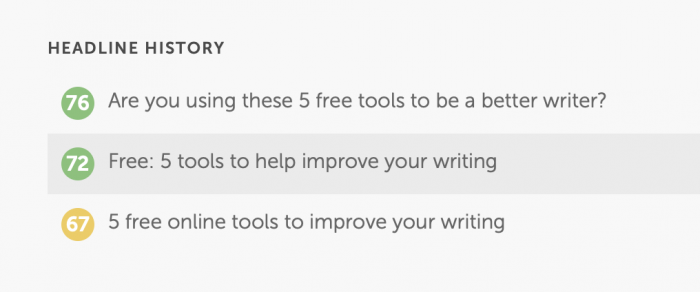
Good writing is fit for purpose and you don’t want your title to misrepresent the content of your blog post or article. The Advanced Marketing Institute has an Emotional Marketing Value Headline Analyzer which gives you a score along with a classification on whether your title is intellectual, spiritual, or empathetic.

It also allows you to choose an industry you’re targeting to ensure you get an accurate reading. I usually test my titles with both tools to ensure the quickest way to a great title. What marketer doesn’t want to “appeal to people at a very deep emotional level”?
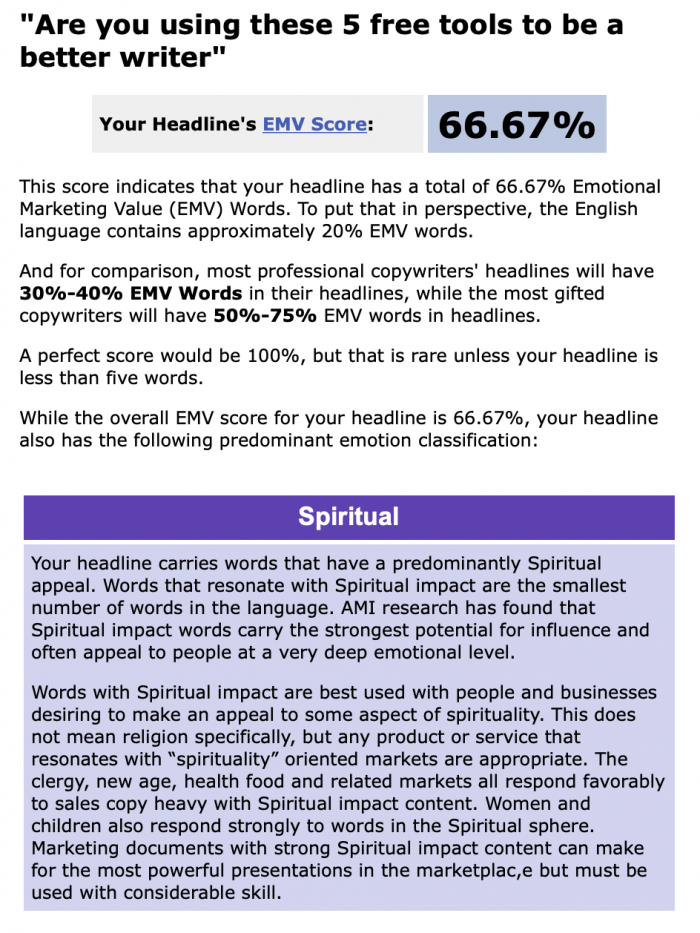
Once I have the seal of approval from both tools, I’m much more confident about my ability to attract readers to my posts.
Do you want to practice writing headlines? Join our next writing masterclass and get one-on-one help.
The quickest way to muddy the waters of great copy is to fill it with jargon. Unfortunately, most business writing is rife with industry-based gobbledegook. One way to filter that out is to send your text through a jargon grader. All you have to do is copy and paste your text and it will be tested for over 700 words and phrases. It might be confronting, but you’ll see exactly where you need to make changes. (In the example below, I tested the beginning of this post.) Over time, you’ll begin to recognise your favourite jargon and naturally eliminate it from your writing. In the meantime, let the jargon grader take care of that problem for you.
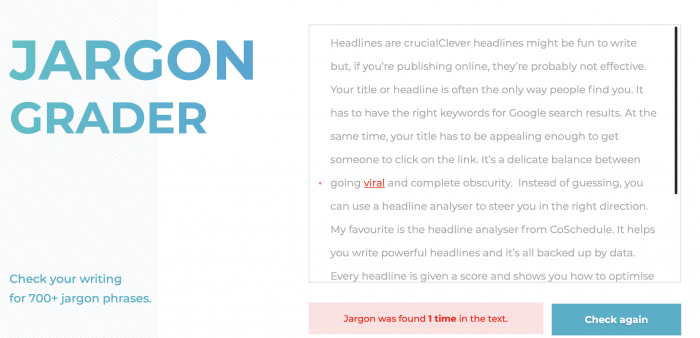
If you’re struggling with writing, check out our writing training course schedule.
Have you ever written a letter so good people couldn’t wait to open the envelope you mailed it in? Nope, I haven’t either. Unlike a plain envelope, an email has the advantage of giving a sneak peak in the title. CoSchedule has come to the rescue once again and has a great little tool to help you get more opens.
Your score includes:
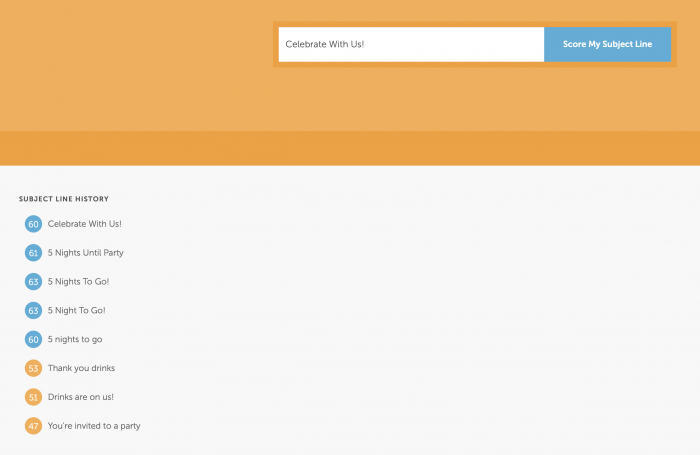
If you’re struggling to find a meaningful topic, Serpstat has a content marketing feature to show you the kinds of questions people use in search terms. It’s a great tool to better understand what people want to know about your business or area of expertise. All you have to do is select the search questions feature and you’ll see all the different ways people are searching with your keyword.
In this example, I searched for the phrase ‘interior paint’. It’s only a partial view of the results, but you can see how useful this tool is in helping you develop topics. As an added bonus, you also have a title prewritten that will match up to search activity.
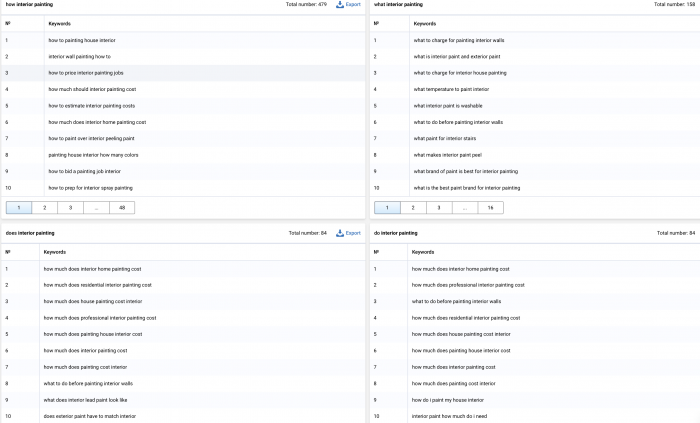
It’s amazing how much help you can find using free online tools for writers. Not only is there guidance on technique, you can also discover inspiration and insight into what makes readers tick. It’s invaluable to your end product. Not only does it make writing feel less difficult, if you have a competitive streak (like me) it’s a lot of fun trying to improve your results. Be warned; you can also burn a lot of time in the pursuit of perfection, so be careful if you have a tight deadline.
If you haven’t already tried these tools, check them out the next time you write a blog post or do any kind of content production. You won’t be sorry.
If you’re feeling like you need to brush up on your writing skills, why not join us in our next public writing course? Better yet, get in touch for more information or to schedule a private course for all the writers in your business.
